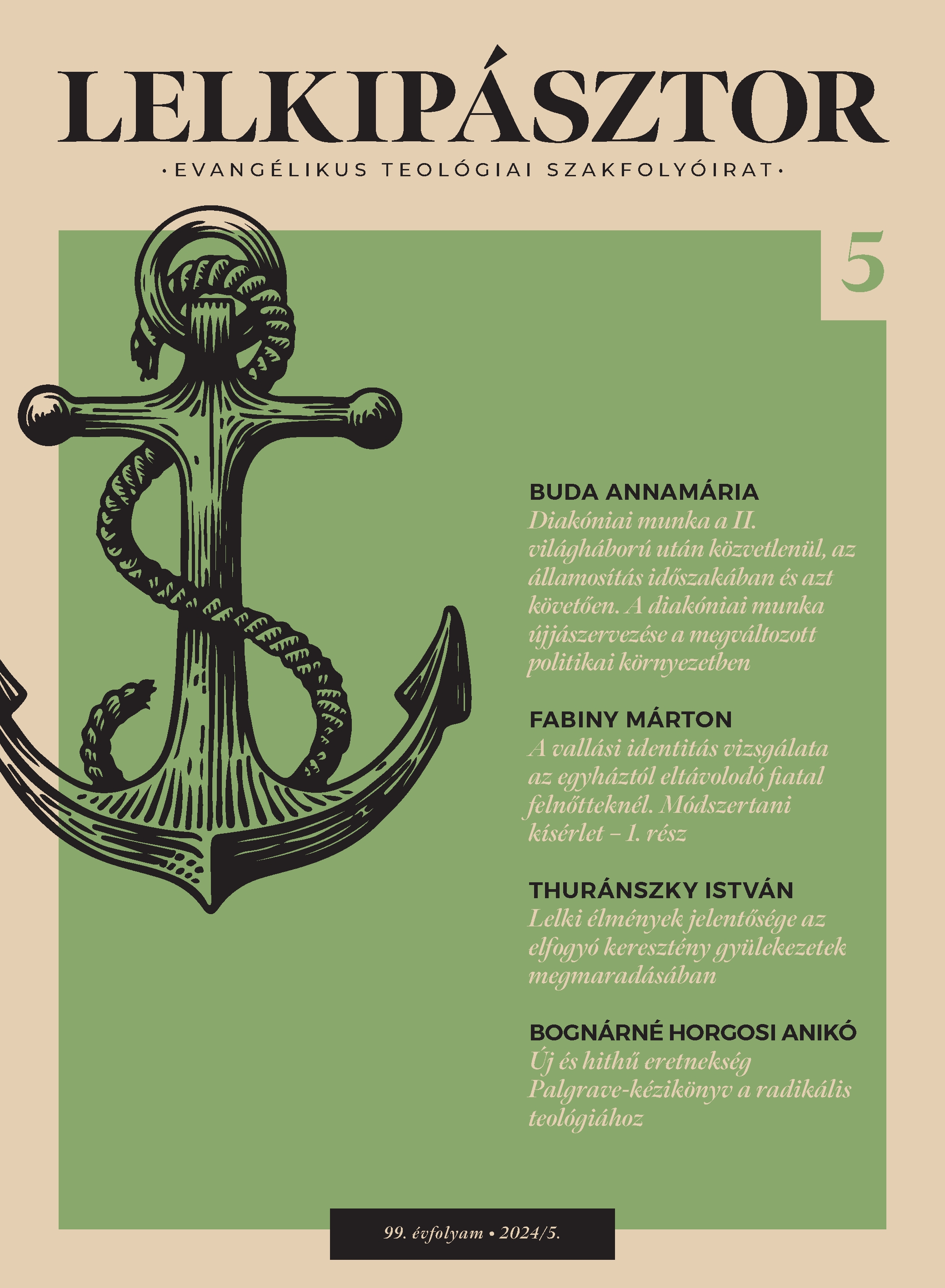Diakóniai munka a II. világháború után közvetlenül, az államosítás időszakában és azt követően
A diakóniai munka újjászervezése a megváltozott politikai környezetben
Absztrakt
A II. világháborút követően a Magyarországi Evangélikus Egyház is olyan társadalmi rendszer része lett, amelynek hivatalos ideológiája az ateizmus volt. A szocialista államrend megszilárdulása idején, 1945 és 1951 között a civil és egyházi egyesületeket feloszlatták. A reformáció hagyományaként addig a gyülekezetek, majd később diakonisszaegyesületek és egyéb egyesületek, alapítványok végezték a diakóniai munkát. A diakonisszaközösségek működésének betiltását követően az egyház megbízásából Sztehlo Gábor szervezte, felügyelte a diakóniai munkát. Az új helyzetben az egyház diakóniai szervezetének magját ő alakította ki és fogta össze. Sajátos egyházpolitikai utat járt be egyházunk, hogy az intézményeket megtarthassa, illetve a még működő civil szervezetektől átmentse a diakóniai tevékenységet.
Hivatkozások
Gergely Jenő 1997. Az egyházak Magyarországon Szent Istvántól napjainkig. Korona Könyvkiadó, Budapest.
Kormányos György 2011. A Protestáns Országos Árvaház története (1859–1952). Szakdolgozat (Kodolányi János Főiskola). Kézirat.
Taschner Erzsébet 1983. A Fébé története (1924–1951). Kézirat. Evangélikus Országos Levéltár.

This work is licensed under a Creative Commons Attribution-NonCommercial-NoDerivatives 4.0 International License.




